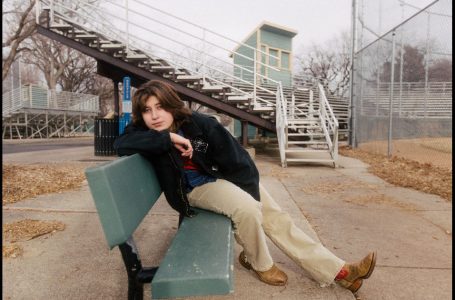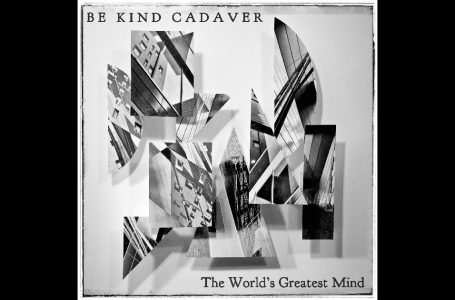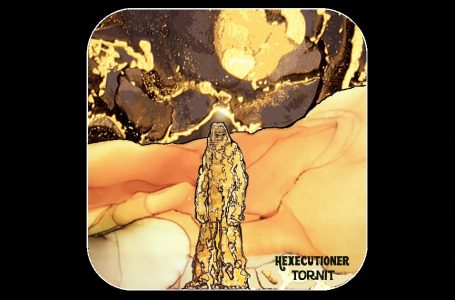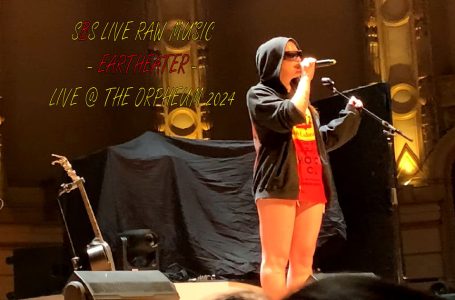Richard Self – Lost Friends & B Sides
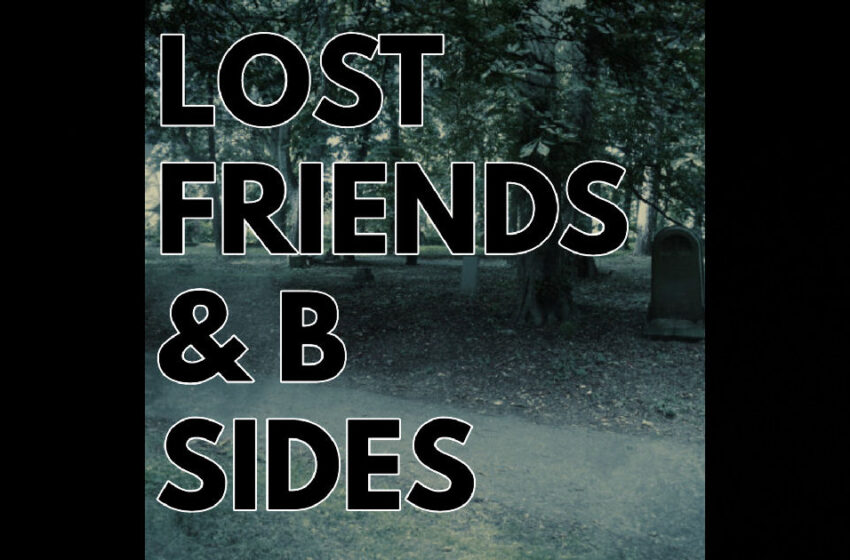
Richard Self – Lost Friends & B Sides – Album Review
I have always been interested in the B Sides albums from artists and bands out there. Way back in my day – aka, the Grunge era, albums like Pisces Iscariot by the Smashing Pumpkins and Incesticide by Nirvana revealed the fact that a wealth of great material can often get left on the cutting room floor. In fact, to this very day, if there’s a time I feel like listening to the Pumpkins, then it’s still Pisces Iscariot that I reach for first. Imagine that eh? A collection of songs that were close to never seeing the light of day, yet somehow that one day becomes someone’s go-to record in your catalog – amazing right? But not unheard of – I’ve found tons of gold in the B Sides of artists and bands from all over the scene and I suspect that’ll always be the case…so heck no, I never shy away from the opportunity to listen to some more. Because honestly, who knows what the criteria is for those songs not ending up on an album – I’ve told people a thousand times that a great tune shouldn’t necessarily fit into that next record’s lineup just due to the fact that it’s real, real good! You want your albums to be cohesive as possible, and quite often that can equate to a solid tune getting chopped or culled from a set-list of songs that makes a little bit more sense without having it included. Doesn’t mean the track was necessarily bad or that it didn’t even live up to someone’s standards – it just might not have been its time. Unfortunately, for years and years in the history of music that often meant these songs would never even see the light of day, before we eventually came round and realized that what we perceived as mistakes usually weren’t mistakes at all. Then those B Side albums came out and us collectors went crazy like pirates plundering hidden gold.
Anyhow! Here we are. Richard Self is in the process of compiling what sounds like a never-ending album intended to contain tons of’em. Which…may or may not work if I’m being truthful with ya. It really depends on the attentive nature of his personal audience I suppose. Most folks don’t read the liner notes like they used to anymore, and even more people out there rightly figure that after they’ve listened to something it’s not going to change afterwards…if they enjoyed it, they’ll go back…if they didn’t, then it’s harder to say that they’ll be inclined to revisit something for another spin. So while I hear where Richard is coming from, and applaud the uniqueness of the idea knowing how rare it is to do something like he’s doing, my recommendation would still be to parse these Lost Friends & B Sides albums in volumes if his goal is to continue mining through his past tunes to release’em in the present.
Otherwise things might end up being found, but possibly left unheard…and if a tree falls in the forest…
…well…you get the idea. Let’s check this out and make sure that at least we’re hearing it over here.
From the sparkle of the guitars on “How Was Your Day?,” you can already get the sense that there’s probably something well worthwhile to listen to on Lost Friends & B Sides. If I’m being real with ya, I’d think it’d be way weirder to find nothing than find something – it’s still Richard Self y’all – we know the guy’s got the kind of genuine connection to music that makes the difference. Listen to the way he finishes off the hooks for the first time for example…lets the song drop off from there, and comes back with even more of a robust approach as he resets and brings it to the spot around ninety seconds in. Or how about when it happens the second time, and he comes back with all that innovative electro-stuff in the background around the 2:42 that sounds outright magical? I love that too! It makes “How Was Your Day?” a somewhat unconventional listening experience in terms of the structure & how this tune will start and stop itself along the way, and I’ll readily concede that to ya…but Richard’s also threaded in a relatable sincerity and hooks that work spectacularly throughout all the parts that carry music to listen to. “How Was Your Day?” feels like an innocent plea for some kind of communication with someone he loves after they’ve shut down a little more than normal in an effort to bring them back around. I feel like that’s a sweet way to start the record, and that the main melody at its core worked really well here.
Then he proceeds to get all kinds of rambunctious as “Countdown” begins, demonstrating the audible proof that we’ll never be able to predict what shows up on an album filled with B Sides. Fair enough! From my experience, that’s how they SHOULD go. These aren’t songs that ever planned on living in the same space, so we’re not looking for cohesiveness in that regard really. So I suppose it really just comes down to your own personal taste and whether or not you like the more amped-up side of Richard’s sound versus the quieter melodies he creates. He kind of finds this spot between stuff like you’d find in the Duran Duran catalog mixed with the Pop/Indie spirit you’d find in the work of early Treble Charger – and it works out for Self in my opinion. I’m sure I’d be the first to say I probably identify more quickly with a low-key tune like “How Was Your Day?” more often than not, but I found the energy and pace of “Countdown” really appealing too. It’s got an exciting mix to it in terms of its production – Richard does a remarkable job of getting the crunch of the music perfect while also using a more tenderized touch towards the vocals to his advantage. “Countdown” feels like a well-balanced tune that supplies all your musical vitamins in one shot, and will likely be considered one of the album’s more engaging tunes too. Plus, you gotta love that organ-esque solo goin’ on in the middle of this tune and the spacious way that Richard brings back the vocals right afterwards, and the harmonies after that…lots of depth to this tune.
“By The Numbers” sounded like a fairly regular tune if I’m being entirely honest with ya. So there you have it – like I was tellin’ ya right from the start, you never know what you’re going to find on a B Sides album, but it doesn’t necessarily mean you’re in for a plate of leftovers or a half-finished meal. I would tell you that I’ve heard better tunes from Self in terms of what has made the records that I’ve personally listened to, but I’m also not turned off by what I hear in “By The Numbers” either. Part of me even thinks a track like this one would be a good single to put out there…the verses have a ton of appeal to them, and I feel like listeners would respond to the balance this song has from part to part. It’s a bit like listening to early R.E.M. as well, which I certainly appreciate…treble-up guitars and discernable melody – there’s a lot here to enjoy on a universal level. Having said that, Lost Friends & B Sides will go on to flex a much more creative catalog and sonic versatility as it carries on, which may or may not work against a tune like “By The Numbers” that contains such a noticeably familiar & comfortable structure & sound. It’s going to be a very individual thing in that regard…B Side albums almost always are…some folks like the songs that were almost A Sides the best, others are tuning in for the experimentation and oddities that exist…and there are people like myself that find something to enjoy in both of those dimensions.
As for “The White Witch Of Burton Joyce” – which refers to both a person and a place – I feel like you can hear Richard’s knack for creating BIG sound when that’s what he’s aiming for. From the way that the bass fills in the song, to the way that the cymbals will crash from the left to the right, to the overdriven sound of the vocals in the main hooks, you’ve actually gotta admire the way that Richard has found a way to bring a LIVE sound to a tune like this. He’s always got something clever to offer your ears when it comes to the melody at the core of his material, and I feel like you might even find more of a payoff in that regard in the verses of “The White Witch Of Burton Joyce” than its chorus, but there’s nothing wrong with switching it up like that occasionally. Even the asides that he’s put into the music as it plays, where he’s saying things like ‘keep it up’ or ‘are you ready’ make it sound and seem like we’re right there in the front row, which I suspect was the main intentions of creating this tune, which also ends up being a longer track at over six-minutes, and feels like it was expanded for a live performance, you know what I mean? So…yeah…I mean, to be truthful, I think there’s a lot of really kickass things about having a track with that kind of dimension and depth to it, and it certainly stands out from the rest for possessing that kind of sound too. Largely I felt like it was a positive for the most part overall. I’d listen to a debate on whether or not the overdriven vocals were perhaps too overdriven, or maybe even feel inclined to start one by pointing that out…but overall, yeah man, I was happy with how this song came out in terms of its production, performance, ideas, and intentions. Different songs serve different purposes, you know? “The White Witch Of Burton Joyce” does things in a decisively unique than the rest of the set in bringing a live sound to Lost Friends & B Sides – and considering the fact that it’s not actually a live song at all, I think you have to give it a few bonus points for its ability to emulate.
Even “The End Of Andromeda” somewhat contains a live-edge to the sound too – which kind of leads you to conclude that it might have been created around the same time as “The White Witch Of Burton Joyce,” or produced more recently to put out a similar vibe in that respect. I’d probably go with the first of the two scenarios. The real question is, is Richard singing about a piece of the actual galaxy literally or even metaphorically, or is he mourning the loss of a Sci-Fi television show called Andromeda that ended in 2005? Again, I’m gonna bet on the former being true…simply because the latter scenario deals with a show that might have been alright given that it was created by the legendary Gene Roddenberry, but it still contained the likes of Kevin freakin’ Sorbo, which is a glaringly obvious minus to any project. Oh the things you’ll think about while you’re listening to music if you allow your mind the freedom to wander around a bit I tell ya! Anyhow…there are laser-like sounds and synths flashing around…a space-like feel to “The End Of Andromeda” that is consistent with the theme…and an authentically interesting story that’s being told within its lyricism too. That’s not to say you won’t find that in many of Richard’s tunes – he’s actually quite a gifted lyricist & songwriter when it comes right down to it – but I think you’ll find on songs like “The End Of Andromeda,” that a more cinematic sound often equates to listeners paying a bit more attention. Adventurous ideas can often get people listening to every detail a bit more clearly. This is the first of many LARGE fade-outs to songs found on this album…but I’ll address that later on.
I really dig the way that “Diplomacy Spectrum” begins with its electro-based percussion and the way that Self has got the sound moving through our speakers. I dig the amount of space in the instrumentation and the clarity he’s creating through the production…that all checks the right boxes too if you ask me. The opening guitars are supremely cool as well…as is the melody they eventually settle into…all-in-all, “Diplomacy Spectrum” immediately feels like we’re in for a real experience that’s unlike the majority of what we find in music, you know what I mean? That kind of interesting approach tends to get my attention every bit as much as an accessible melody will, though I still recognize the difference between what gets listened to & approved by the masses as well. I’m all for art and creativity taking the reins in the craft of making music – I think that it’s crucially important to explore what you’re capable of. In the case of a track like “Diplomacy Spectrum” and many other tunes you’d describe in a similar way, the trade-off for a more ambitious & artistic design literally translates into what gets listened to and what doesn’t more often than any of us would probably want to admit…but I always advocate on behalf of artists testing the waters regardless. It’s important – it’s how breakthroughs are made, pass or fail. While we could go back and forth about whether or not “Diplomacy Spectrum” itself works as a standalone song, the fact is that what an artist like Richard might have discovered in the process of making it could play a significant role in other things he creates down the road in a variety of ways. I guess what I’m saying is that exploring our creativity doesn’t always reveal the benefits of doing that in that particularly specific moment – a lot of the payoff is unseen and unknown until later on. Personally, I enjoy “Diplomacy Spectrum,” though I’d acknowledge I’m probably more the exception than the rule. I like the exploratory vibe this song contains…it feels fearlessly adventurous, and my ears appreciate that.
The effect of uniqueness can be a double-edged sword, and it’s usually why B Side-inspired albums are tough ones to pull off. Now that I’ve had the experience of a “Diplomacy Spectrum” and the creativity that Richard revealed there, it makes switching back to a track like “Tell Me” that much more difficult for me personally, because now I’m in the mood for creativity and ideas off the beaten path. “Tell Me” is a decent tune by every standard measure I’d reckon…and to be entirely truthful with ya, the execution is outright awesome – LISTEN to that spot around the 2:25 mark and tell me any different! There’s a brightness to “Tell Me” that’s absolutely enticing to listen to, and a more familiar style & structure that’ll have the majority of folks quickly praising a song like this in comparison to the artistic merits of a track like “Diplomacy Spectrum,” and I get that. There’s a lot of me that wishes this wasn’t always going to be the case and so entirely predictable when it comes to how music is received, but I still get it nonetheless.
Love the combination of the bass and the drums on “More Holidays,” and I feel like Richard deserves a shout-out for how consistent his vocals have been throughout this entire record. Like I was saying earlier on, it’s not like this album feels like we’re being served a plate of reheated leftovers – this material still feels fresh, versatile, and alive. I have my moments here and there with the sheer sonic variety on display in “More Holidays” and would be ready to argue tooth and nail that it’s the main hooks of the chorus that eventually make this song victorious…but…there are many ideas threaded into this one experience that makes it as dynamic as it is. Whenever you find diversity like that at a pace like this, you’re bound to end up with feeling like you might like one part more than another etc. etc., but in the end, a single strong part can make an entire experience worthwhile on the listening side of the speakers and Richard puts plenty of’em into this tune. The instrumentation is wild, the production packs a noticeable punch, the vocal melody provides exceptional calm in contrast during the hooks, and another type of energy altogether when outside of’em…”More Holidays” is a multi-dimensional song at the core of it all, but one that shows how gifted Self can be at incorporating multiple concepts into one experience. As to whether or not you’ll love every bit of a song like this as much as the others all the way through…I mean…it seems a little unlikely I guess, but I’d also say that’s still true of most songs too.
I think a lot of the creativity you’ll find in the background layers of Self’s music deserves a ton of credit for making his songs become as enticing and entertaining as they are. He puts a lot of work into his material, and he should be receiving serious accolades for what he’s able to achieve on that level. Like most artists, he’s probably still got some room to be a bit more brutal about what does or doesn’t work inside of his material and be a little more ready to simply rework something instead of go with it, but for the most part, his instincts continually lead him to victory. In the case of a track like “Bigger Than The Universe” for example, he’s got a whole spectrum of colorful sound and melody working in his favor – and that instantly becomes the main strength of the song. So to dip into a couple of bars of Rap when that’s not exactly his forte to begin with, and they come out much more flat in comparison to the spark that surrounds them at every twist & turn of “Bigger Than The Universe” – those are the moments where a more brutal hand needs to come in and simply chop out what doesn’t work. When you’ve got a song that is 95% stellar like I’d argue “Bigger Than The Universe” ultimately IS, it’s still gonna be the 5% that Richard hears for the rest of his life, never mind the rest of us listening. As for the overly gratuitous fade-out at the end of this song that feels like it accounts for about a quarter of its total length…Richard, my man…slide those dials with a bit more urgency eh? I know I was raised in the Grunge era where a fade was considered to be an atrocity to begin with, but I was also a child in the era of recording mix tapes too, and my father raised me to know better than to simply let a song cut off at the end if there wasn’t enough time to fit the whole thing, as opposed to taking the time to slowly back the dial down and let a song fade out in the middle if you had to. I mean…it was a better option than blank space y’all – if you were there at that time, you get it. If you’ve been spoiled in that regard in the age of digitalized media, trust me, I envy you – but you’ll never know the real art of the fade either. Anyhow. Self’s got a large one goin’ on here on “Bigger Than The Universe” and I probably would have just preferred to have more of this song at regular volume rather than the slow dissipation of what I was enjoying beforehand. To be entirely fair to Self, once again, I remind you that this album is made from B Sides – so while it’s true that he could have chopped parts of this song, like the Rap verse earlier on to potentially improve how he might feel about it as its creator – he’s simply gone one step further and chose not to include it on whichever album he was working on at the time, which is the right call to make if you ever feel unsure or on the fence about any given tune. Always better to let an idea incubate a little longer if you feel the slightest bit hesitant about it, which he did – there are countless great things about a song like this that make it something you wouldn’t want to completely give up on, or at least reexamine later on.
Bass and guitars stand out for all the right reasons as “Spiders” begins, which is currently the final track on Lost Friends & B Sides. As the beat kicks in, this last track fast becomes pretty damn irresistible, and possesses a similar 3D energy in the music like you’d find on something like U2’s Achtung Baby. Which is kind of an interesting comparison to draw to considering that album contains a song called “The Fly.” Anyhow. Regardless of what side of this tangled web I’m weaving you feel like Richard belongs on, I think we can all universally agree that he ends this record with what’s probably its best tune, right? Definitely in its top three? This is one of those tracks that, as a fan of Richard’s music, I’d be parading around as PURE SONIC GOLD, because it IS! It’s the kind of cut that’s shocking to find and realize we almost missed out on it altogether! To think that a song like this almost didn’t see the light of day is like avoiding a plane crash, or feeling like you’re in the most functional version of your own personal multiverse. He’s again rockin’ an overly lengthy fade out, which I’ve made my comments on already, and stand by them, but other than that, “Spiders” is one of those rare B Sides you know is undeniably an A Side by all accounts and definitions. Every time I spun my way through this tune, I was continually impressed by the tone of the bass as it began, and the absolutely ecstatic about the way the beat kicks into “Spiders” as well. I also love the fact that Richard is unafraid to let the music speak for itself…you listen to a track like “Spiders” and you know he’s not rushing to add vocals in right away. Nearly two minutes pass by before we even hear his voice, at which point, you’re practically not expecting them or wondering if they’d even really be needed at all. That ends up creating a unique kind of pressure too…because if you’re not adding something, you’re subtracting, straight up – so it was awesome to hear Richard come out with such a strong part with his vocals to strengthen “Spiders” even more. It sure as hell makes for a freakin’ great finale to this record and gets us excited about what else he might find in the vault of his B Sides – or at the very least, for another spin through this wildly eclectic collection of tunes to take another ride.
Listen to more music by Richard Self at Spotify here: https://open.spotify.com/artist/0Hl9b9gJ5sKJNkWGzfHmHT
It’s a whole new year for you to ignore this message down here! Did you know you could be the next up on our pages at sleepingbagstudios by clicking here?


